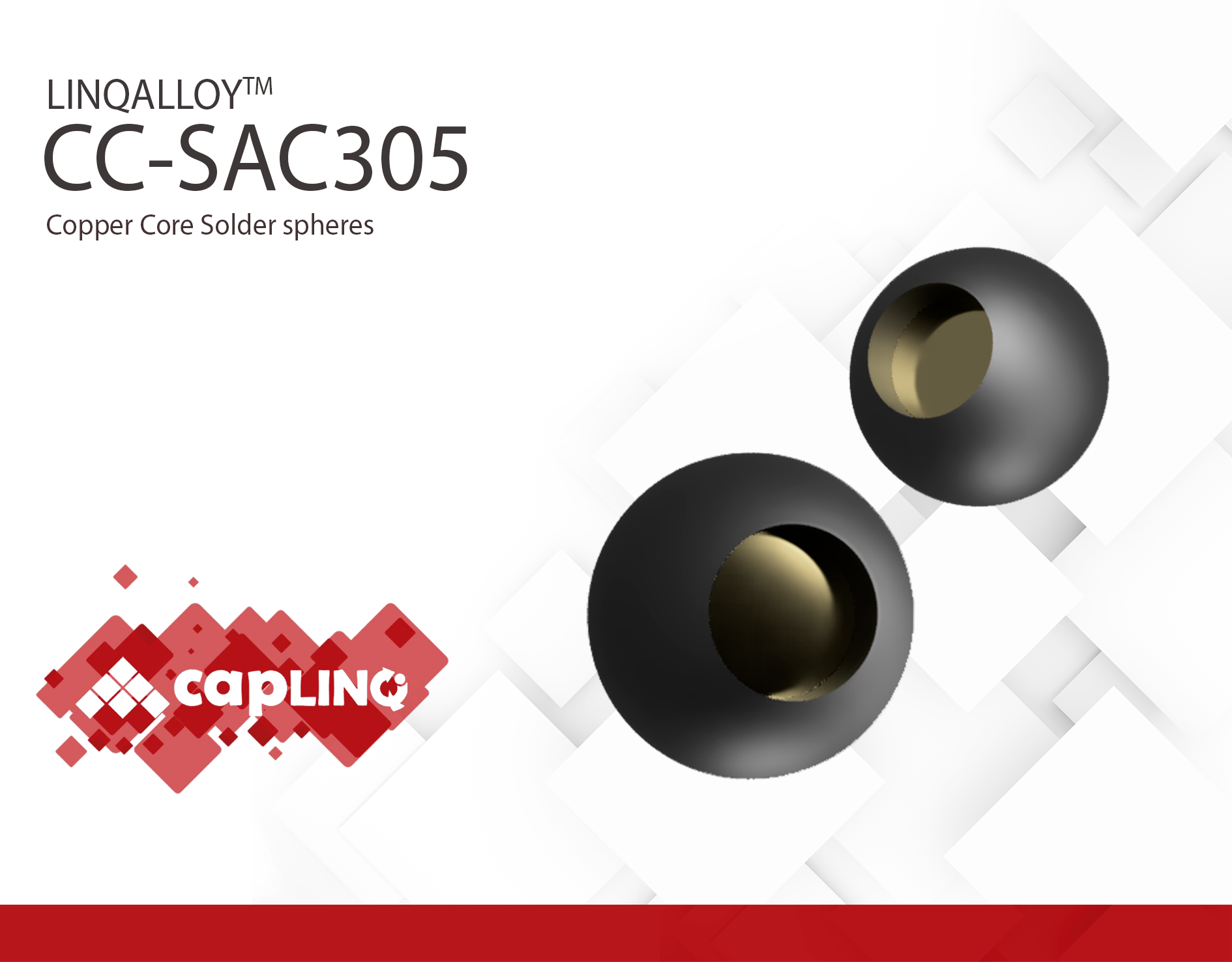CC-SAC305 | Copper Core SAC 305 Solder spheres
- SAC 305 alloy
- Core of the sphere is Copper
- Excellent fatigue resistance
Product Description
LINQALLOY CC-SAC305 solder Spheres are lead-free Tin/Silver/Copper alloys that contain 96.5% Tin (Sn), 3% Silver (Ag), and 0.5% Copper (Cu) and is often written as Sn96.5Ag3.0Cu0.5. These are not the normal SAC305 spheres since they have a copper core that enables "no tilt" designs and can act as a spacer for applications that require perfect BLT control. The size of the core depends on the diameter of the sphere.
LINQALLOY CC-SAC305 offers has excellent fatigue resistance and it is compatible with all flux types. It exhibits excellent joint reliability and it is the best wetting Sn/Ag/Cu alloy in the market.
Technical Specifications
| General Properties | |||||||
| Alloy Type Alloy Type A metallic element type | SAC305 | ||||||
| Density (g) | 7.4 g/cm3 | ||||||
| Mechanical Properties | |||||||
| Elongation Elongation Elongation is the process of lengthening something. It is a percentage that measures the initial, unstressed, length compared to the length of the material right before it breaks. It is commonly referred to as Ultimate Elongation or Tensile Elongation at break. | 37 % | ||||||
| Thermal Properties | |||||||
| |||||||
| |||||||
| Thermal Conductivity Thermal Conductivity Thermal conductivity describes the ability of a material to conduct heat. It is required by power packages in order to dissipate heat and maintain stable electrical performance. Thermal conductivity units are [W/(m K)] in the SI system and [Btu/(hr ft °F)] in the Imperial system. | 71.8 W/m.K | ||||||
Additional Information
Each jar has a clear label on the lid specifying the solder ball diameter as well as a label on the front identifying the alloy type, the quantity of spheres in the jar, the date of manufacture, and the product lot (or batch) number. This batch number is also tied to a certificate of conformance that is also provided with the solder spheres and ensures the SAC305 solder spheres meet the following quality criteria:
- Tin (Sn): 96.5%
- Silver (Ag): 3%
- Copper (Cu): 0.5%
- Melting Temperature (Solidus): 217°C
- Melting Temperature (Liquidus): 219°C
- Spheroid Tolerance : Within 1.5%
Diameter Tolerance
- 0.075mm - 0.15mm (3-6 mils) : ±0.005mm (±0.2 mils)
- 0.20mm - 0.60mm (8-24 mils) : ±0.010mm (±0.4 mils)
- 0.65mm - 0.76mm (25-30 mils) : ±0.015mm (±0.6 mils)
Sphere diameter and Copper Core size reference
- 100 um – 60 um Core Copper
- 150 um – 110 um Core Copper
- 250 um – 210 um Core Copper



